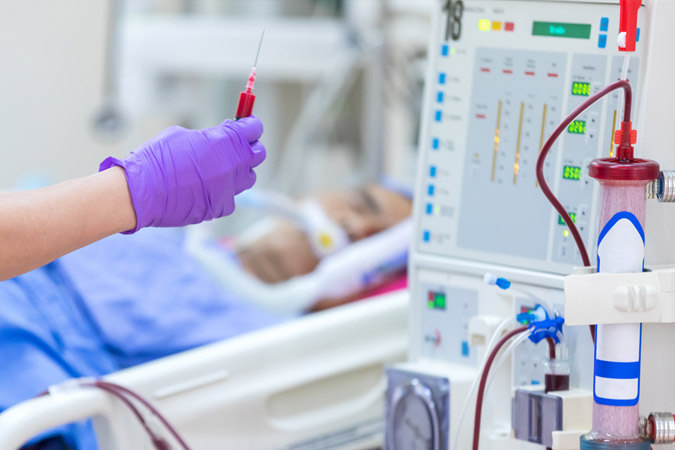Haemodialysis centres throughout Syria suffer from a lack of central management, poor IPC practices and limited services for patients with hepatitis B and C virus (HBV and HCV) and HIV. Securing dialysis kits and maintaining machines and water treatment units are constant challenges. Widespread shortages of haemodialysis facilities have meant that that thousands of Syrians have had no access to these life-saving services.
In 2019, WHO’s updated service map of haemodialysis facilities in northwest Syria showed that 21 centres (nine in Aleppo and 12 in Idleb5) were carrying out 6500 sessions for 655 patients each month. WHO’s survey of bloodborne viruses among these patients showed that 320 (48%) had HCV, 29 had HBV and one patient had HIV. WHO conducted an HBV vaccination campaign and procured IPC and haemodialysis kits for 500 patients for six months. WHO supported five haemodialysis centres in northeast Syria by maintaining equipment, delivering water supplies and purification systems, providing 10 haemodialysis machines and supporting 10 900 haemodialysis sessions.





